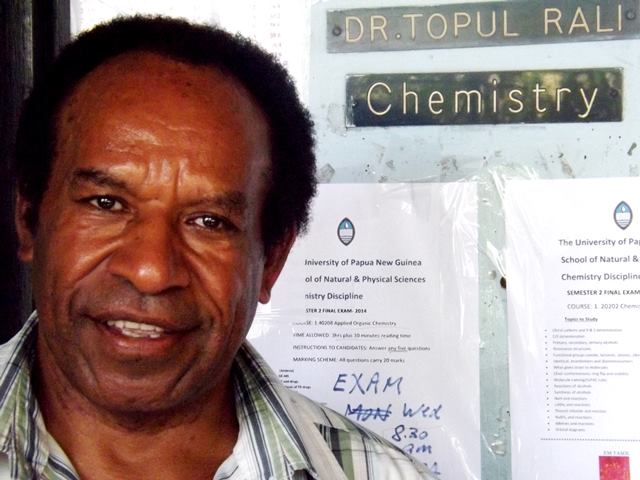Papua New Guinea is destined to become the world’s hub of a natural plant that scientists have found medicinal properties in it that could cure multiple variants of Covid-19 as well the HIV/AIDS viruses respectively.
PNG’s very own natural product Chemist and professor of Chemistry at the University of Papua New Guinea School of Natural and Physical Sciences (UPNG SNPS), Professor Topul Rali has revealed that Hopeaphenol, a naturally-occurring stilbenoid compound from a plant he collected and submitted to Australia’s Griffith University in 1996 now “appears as a top candidate for treatment against Covid-19 and even HIV”.
“This news article (COVID-19 SARS-CoV-2 preprints from medRxiv and bioRxiv) of a PNG plant I collected and submitted for testing with Griffith University in Brisbane in collaboration with other researchers in the USA has revealed a compound called HOPEAPHENOL which appears as a top candidate for Covid-19 and even HIV.
“If you punch the link just below the Covid-19 virus (pic) it will show all the researchers involved including myself from PNG. (The natural stilbenoid (–)-hopeaphenol inhibits cellular entry of SARS-CoV-2 USA-WA1/2020, B.1.1.7 and B.1.351 variants. Ian Tietjen, Joel Cassel, Emery T. Register, Xiang Yang Zhou, Troy E. Messick, Frederick Keeney, Lily D. Lu, Karren D. Beattie, Topul Rali, Hildegund C. J. Ertl, Joseph M. Salvino, Rohan A. Davis, Luis J. Montaner doi: https://doi.org/10.1101/2021.04.29.442010).
“I am keeping my fingers crossed for a pharmaceutical company like Astra Zeneca to develop a drug out of it apart from its (current) vaccine production,” Prof. Rali said this week in a WhatsApp exchange with this journalist.
In its April, 2021 publication, bioRxiv (pronounced “bio-archive) an open access preprint repository for biological sciences stated: “Notably, Hopeaphenol also inhibited two emerging variants of concern originating from the United Kingdom (B.1.1.7) and South Africa (B.1.351) in both cytopathic effect and spike-containing pseudovirus assays with similar (B.1.1.7) or improved (B.1.351) efficacies over the USA- WA1/2020 variant.
“These results identify Hopeaphenol and related stilbenoid analogues as potent and selective inhibitors of viral entry across multiple SARS-CoV-2 variants including those with increased infectivity and/or reduced susceptibility to existing vaccines.
“SARS-CoV-2 antivirals are needed to supplement existing vaccine efforts and target emerging viral variants with increased infectivity or reduced susceptibility to existing vaccines. Here we show that Hopeaphenol, a naturally-occurring stilbenoid compound, in addition to its analogues vatalbinoside A and vaticanol B, inhibit SARS-CoV-2 by blocking the interaction of the viral spike protein with the cellular ACE2 entry receptor.
“Importantly, in addition to inhibiting the early USA-WA1/2020 SARS-CoV-2 variant, Hopeaphenol also inhibits emerging variants of concern including B.1.1.7 (“United Kingdom variant”) and B.1.351 (“South Africa variant”), with improved efficacy against B.1.351.
“Hopeaphenol therefore represents a new antiviral lead against infection from multiple SARS-CoV-2 variants.
The authors have declared no competing interest adding that Clinical Trials and Epidemiology subject categories are now closed to new submissions following the completion of bioRxiv’s clinical research pilot project and launch of the dedicated health sciences server medRxiv (submit.medrxiv.org).
However, the authors noted that this article is a preprint and has not been certified by peer review.
In a follow up effort to develop a home grown drug treatment for Covid-19 viral infections, Prof. Rali and Dr. Bomai Kerenga are looking at developing a large scale extraction of Hopeaphenol from a PNG local tree in kilogram quantities to trial new formulations.

